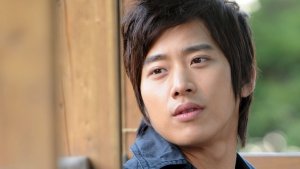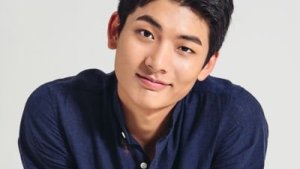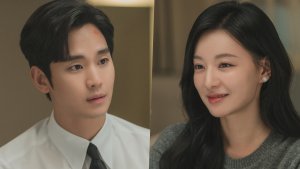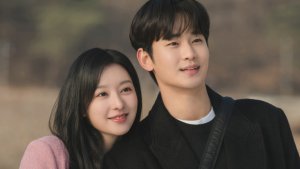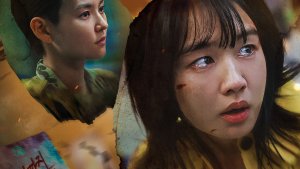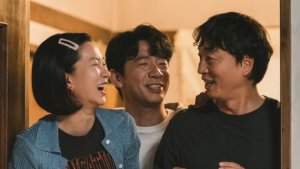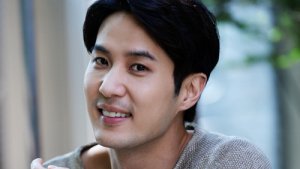 An Ultra Fan's Guide to Kim Ji Suk
An Ultra Fan's Guide to Kim Ji Suk
Japanese Occupation of Korea
1910-1945 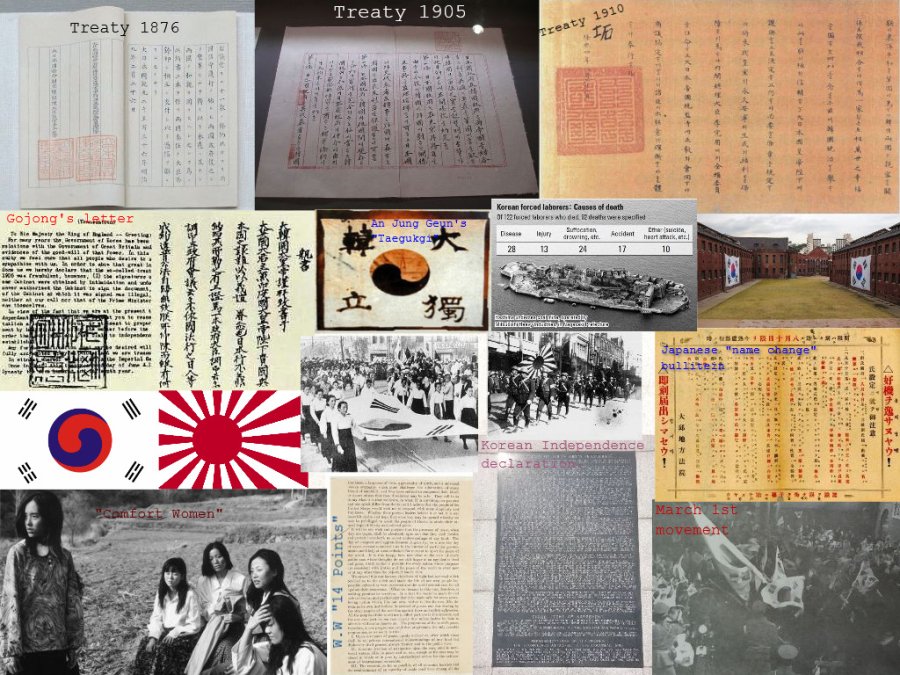
WARNING: The following subject may be sensitive to some! Check out -> Japanese Occupation of Korea Part 1
History Continued (Part 2)
Korea under Japanese Rule Wikipedia
(all info in this article comes from Wikipedia & other various sources - all linked for you to easily access and read more about, I only included the more major and significant information).
1926 - June 10th Movement a.k.a another 'Manse Demonstration'
Brought on by the mourning of King Sunjong, the Japanese, reminded of what took place after Gojong died, kept a closer watch on the Koreans in case another such protest should occur. University students and middle school students alike joined in. Flags, statements, and flyers were made, and after 10,000 flyers were printed, all the students took them back to their respective schools and began dispersing them amongst the student population. University students and middle school students alike joined in. At 8:30 am, on June 10th, 240,000 students including about 300 middle school students, lined the streets and paraded through downtown Seoul scattering the independence proclamations and shouting “10,000 years of independent Joseon! The Japanese suppressed this movement and 210 students were caught, 53 imprisoned, 7 students were prosecuted ranging from 1-3yrs. It was the first street demonstration for National Independence that had been solely planned and carried out by students. This movement revived the stagnant independence movement.
1929 - Gwangju Student Independence Movement
The first movement was brought on when some Japanese students harassed a few Korean female students. On November 3rd, the students were forced to sing the National Anthem of Japan, but instead of singing, the students remained quiet or shouted for independence. The second movement on November 12th, student groups lead by Jaeseong Jang passed out requests for people to join this movement. A few high schools decided to go on strike against the Japanese regime. More people were ignited to join when the Japanese threatened suspension on them.
1931 - Wanpaoshan Incident
Anti-Chinese Riots broke out called 'Wanpaoshan Incident'. as a result of public anger against the treatment of Korean migrants in Manchuria.
1939/1940 - Ordinances 19 & 20
"Name change policy" where they could voluntarily change their surname and their given name to a Japanese one. In April they began to promote this policy more seriously and the name change rate went up quickly from 3.9% in April to 80.3% in August. Some say the reason for the drastic change was b/c they were harassed if they didn't change their name, others say they changed their names so they wouldn't be discriminated against. Most of this was only a 'Shi' change (a surname/family name) change. Only 9.6% changed their given name. In 1939, there were 981,000 Koreans living in Japan as immigrants.
This name change policy was a part of Japan's assimilation efforts and was heavily resisted by the Korean people. Those who kept their Korean names were not allowed to enrol in school, were refused service in government offices and were excluded from the list for food rations & other supplies.
1939-1944 - National Mobilization Law, Deportation of forced labour
Japan started to draft Koreans in 1944 when WW2 looked dire before then it was according to history voluntary. Even so, because of the conscription and drafting, the Japanese didn't trust the Korean soldiers who fought beside them and at times killed them in order to not let them turn on them when the Americans invaded.
WW2 (also noted the Pacific War & the 2nd Sino-Japanese war) had broken out in 1939, the US got involved in it when Japan bombed Pearl Harbor on June 7th, 1941. The US subsequently declared war on Japan (as well as Britain, Australia & other nations) and then Germany declared war on the US. Hitler had already been wreaking havoc in Germany and conquering country and state after one another. He first made a pact with Russian leader Stalin whom he later backstabbed and attacked Russia. Germany and Japan signed a "pact" agreement & Italy signed it a year later. The Holocaust also happened during Hitler's reign in Germany where over 6million Jews were killed by Nazi Germany, marked as the "deadliest genocide in history". Both the German's & the Japanese's goal was World Domination.
1945 - End of WW2
Following the atomic bombs dropped on Hiroshima and Nagasaki, the Japanese surrendered to the allied forces on the 15th of August, ending 35 years of Japanese occupation. On September 8th, American forces arrived in the Southern part of Korea, while the Soviet Army and some Korean Communists stationed themselves in the Northern part. US Colonel Dean Rusk proposed to the Soviet Military administrator that Korea should be split at the 38th Parallel - this proposal was made at an emergency meeting to determine postwar spheres of influence, which lead to the division of Korea.
1946 - 'Name Restoration Order'
'Name Restoration Order' was issued on October 23 by the United States, which enabled Koreans to restore their Korean names if they wanted.
Most of the Korean industry was in the North while the agriculture was in the South. Because of the North would frequently cut electricity and other things. Presidential elections were held in 1948 and the American troops withdrew in 1949. Jeju Uprising also took place in this period. This was a very "unstable" time b/c of Communist beliefs under Soviet leadership in the North and Democratic/Capitalistic beliefs under American leadership in the South. They all wanted to be unified but b/c of these political differences it was nearly impossible. The clip from Arirang Tv states that Korea would never have been split if not for the Japanese Occupation which caused all these divisions to begin with. B/c independent activists had to flee to China, Russia or other such places, people were encountering different political stances.
By June 25, 1950, the North attacked the South and marked the beginning of the war.
Human experiments were taking place here during WW2. The things these prisoners were faced with were: Vivisection, germ warfare attacks, Frostbite testing, Syphilis, Rape and forced pregnancy, weapon testing (used as a human test weapon), Other experiments such as sea water injections, starvation, gas chambers and even being burned or buried alive.
Dramas
Seoul 1945 (2006) 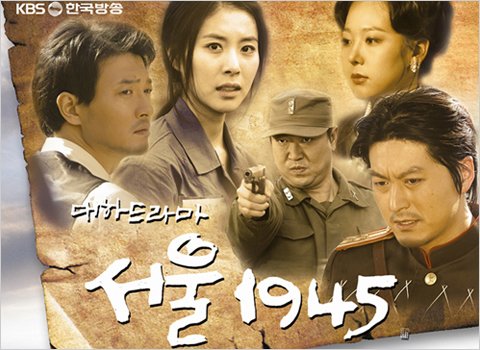
MV (doesn't show much of the drama mostly just the earlier episodes)
The first 4 episodes are set in the latter years of the Japanese Occupation. Then it is focused during the times between the Occupation till the War that breaks out because of different ideals/beliefs brought on by the Soviet North and the Democratic South. At the end of WW2, Russia obtained control over the North and the US over the South - different doctrines were being taught. (This reminds me of that documentary I watched from Arirang TV where she says that North/South would never have split if it hadn't been for the occupation). Hae Kyeong (Ke Hee) grew up as a servant to Suk Kyung who's father was a Pro-Japanese traitor. Hae Kyung is in love with a childhood friend from her hometown, Oon Hyuk, who later flees to Russia because of his communistic beliefs and friends in that field. Dong Woo is also the son of a pro-Japanese traitor but his father quickly releases all ties to that in order to save himself from the persecution that would surely follow. He is engaged to Suk Kyung since childhood (an arranged engagement) but she only cares for him as a brother or friend, not as a man. Suk Kyung is envious of Ke Hee whom Oon Hyuk loves but whom she loves. Because of all these entanglements, the characters are constantly moved from one thing to another. Once again, I didn't like this very much because of the main girl being in love with a man with the wrong ideas. I finished this drama solely for Dong Woo and the period of time it was set in. Episodes 50-71 are set during the Korean war.
Quotes:
DW - "You say that there is no hope in the South, but it's the North that is without hope in my view. Look how many people the Russian communists have killed and how many people have been robbed of their possessions and driven to the South. Communism? How could everyone be equal? It's a fantasy, a dream."
OH - "We're not trying to make everyone equal. But everyone must be allowed equal opportunity. How about the United States, the leader of Capitalism? Is it a land of opportunity where everyone reaps the fruit of their efforts? Slaves worked like animals, immigrants and white working class make all the sacrifices, and only the privileged few live good lives."
DW - "Do you think it's any different in Russia and communist countries? A communist government holds absolute authority over its state and dominates the people. The only difference is the do it in the "name" of the common people. A mature democracy is the only hope for South Korea. A mature Capitalism."
Oasis (2003) 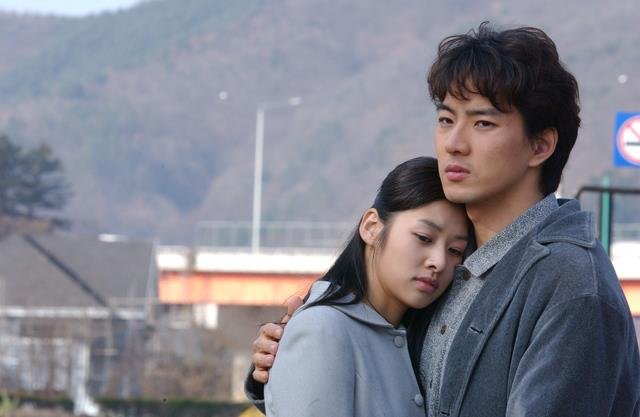
MV (contains spoilers)
During this period in time, our main leads father was killed before his eyes by a man. years pass, he meets and falls in love with a woman. He finds out that the man who killed his father is currently where the girl he loves lives. He is torn between love and revenge. It's a nice love story set in this terrible time.
Quotes: "Thank you for being born, for meeting me, for being with me."
Amnok River Flows (2008) 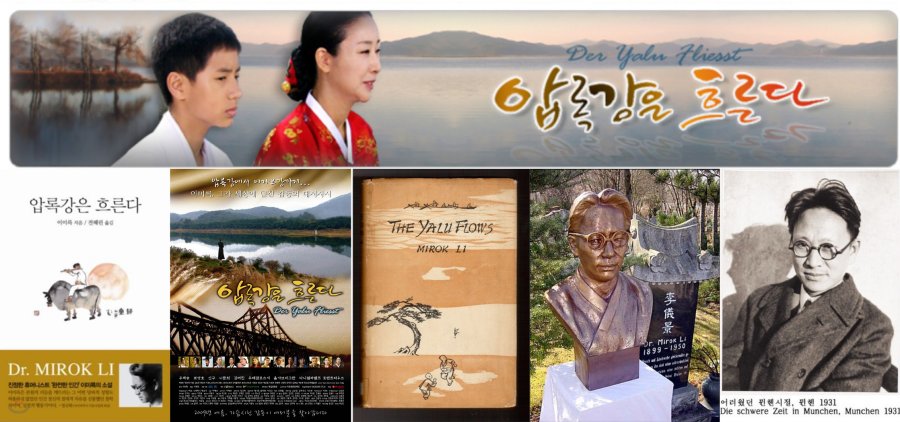
About a man who fled to Germany after being chased down for participating in the March movement of 1919. He lives his life there and writes about home. He is a philosopher and ex-doctor in training. and eventually a novelist. The first episode follows what is written in his novel. the following episodes are all filmed in Germany and they show the girls from there that like him (his own moral dedication to his wife back home - although it was only physically because, in my eyes, his heart was not there - but, of course, it was an arranged marriage). The Hitler Nazi outbreak, the hiding of Jews and the eventual freeing of Korea and his death.
Eyes of Dawn (1991)
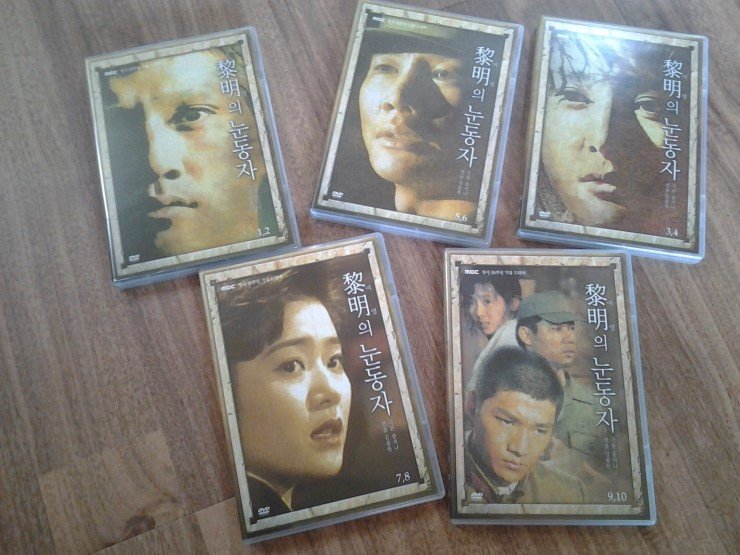
I have not seen this, but it's supposed to be about a comfort woman who ends up in a love triangle of sorts with 2 men: one she meets and falls in love with but is separated from because of the war, and another she meets after and plans to marry until she is reunited with her love. (The thing I don't like, from reading the synopsis of this drama, is that the one she loves is once again a North Korean soldier - it seems these dramas like to make the women love them instead of the ones on the South side... :/ *my main tiff with 'Seoul 1945'* So I don't think I'll ever watch this.) But it got high ratings when it aired.
Into the Flames (2014) 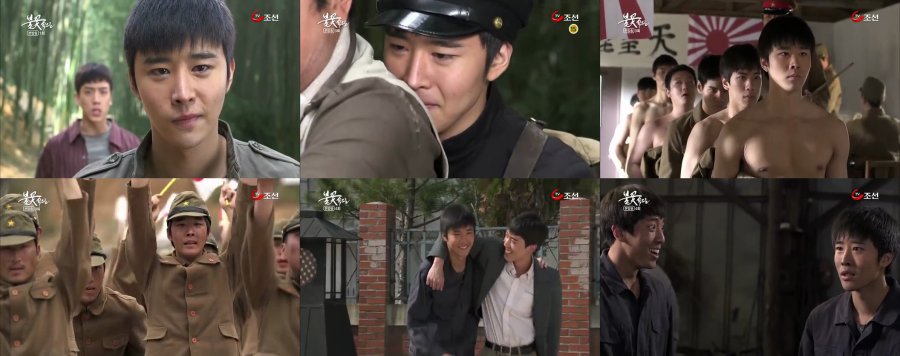
MV of the first 4 episodes (contains minor spoilers)
This drama starts out in 1943 of the Japanese occupation and it shows the discrimination of the Joseon people in Japan (where the main character resided until Korea was freed in 1945). It shows him as a youth learning martial arts but having to do whatever the dojo master tells him to - which ended up making him do some gangster like things in the process. He meets a friend (a fellow Joseon) and they become close. There is a love triangle between them with a Japanese girl as young men. When Korea is freed, the lead and his family move back to Korea. Then the drama skips to 1966. Only the first 4 episodes are during the Japanese occupation. (but I personally think it's the best part of the drama - the rest is good but the first 4 episodes are just amazing IMO).
Movies
The Last Princess (2016) 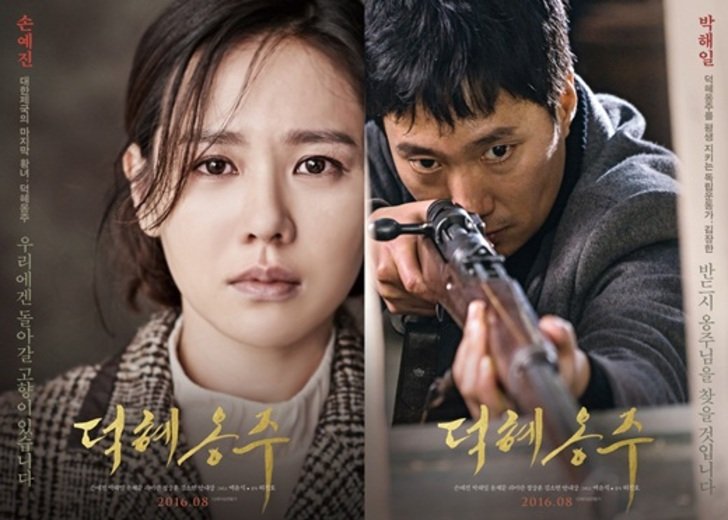
About the last princess of Joseon, she was taken from her homeland and sent to Japan, she dreamed of the day she could go back home, but things kept her away and then the government kept her shunned from returning for political reasons, so she didn't get to see her beloved homeland until she was quite old and not many remembered her. Her life was so sad. :'( She longed for her homeland so bad it was all she could think about. And her friend who stopped at nothing to try and bring her home.
Assassination (2015) 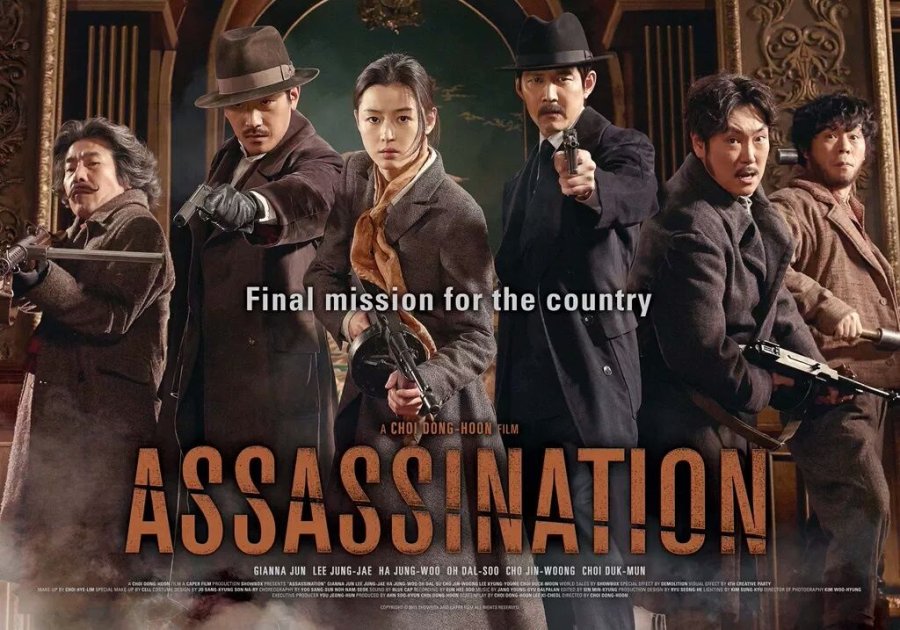
A group of resistance fighters gathers to be assassins with a plan to eliminate a few of the Japanese higher officers and betrayers of the country. But there is also a betrayer amongst them. The main lead is a daughter of one Korea's biggest traitors, her mother was killed when she was only a baby and she was separated from her twin sister. When they meet later, they are on different sides of the fence and harsh truths are brought to light.
Dongju: Portrait of a Poet (2016) 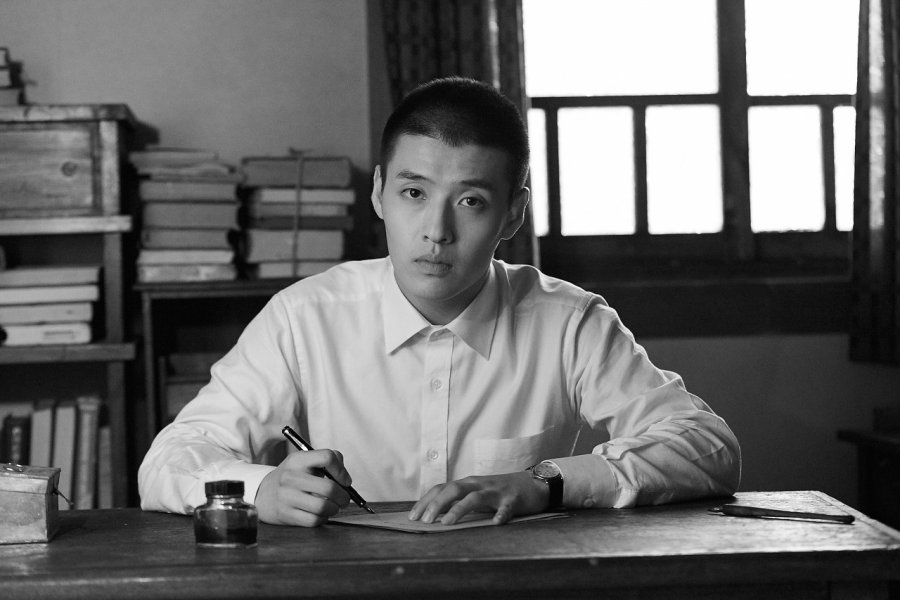
It's a "portrait" or a depiction of the life of a Korean poet who lived during the Japanese occupation. It shows pieces of his life: his desire to write poetry despite troubling times, his own quest for freedom and wanting to help his cousin with the independence move and his capture and torture by the Japanese. It goes back and forth from the past to his interrogation. It's black and white film. He was kept in a war prison in Fukuoka Japan where they would do live experiments on the prisoners, one being the lethal injection of seawater. "In this prison, more than 1,800 people died getting unidentified injections."
Quotes: "I shall walk the path given to me."
The Silenced (2015) 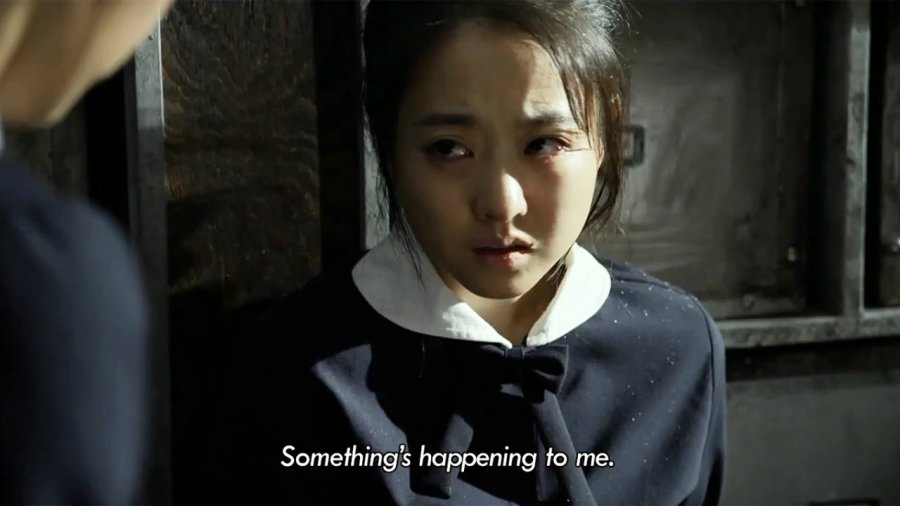
A group of young girls who get sent to an all girls "sanatorium" where they would send girls who had sicknesses or illnesses that their families didn't want to deal with, basically they were abandoned by their families to the state. In a time of the Japanese Colonization, these girls were experiencing frightening things there and to begin to search for what is going on under their eyes. What they find is horrible.
Love, Lies (2016) 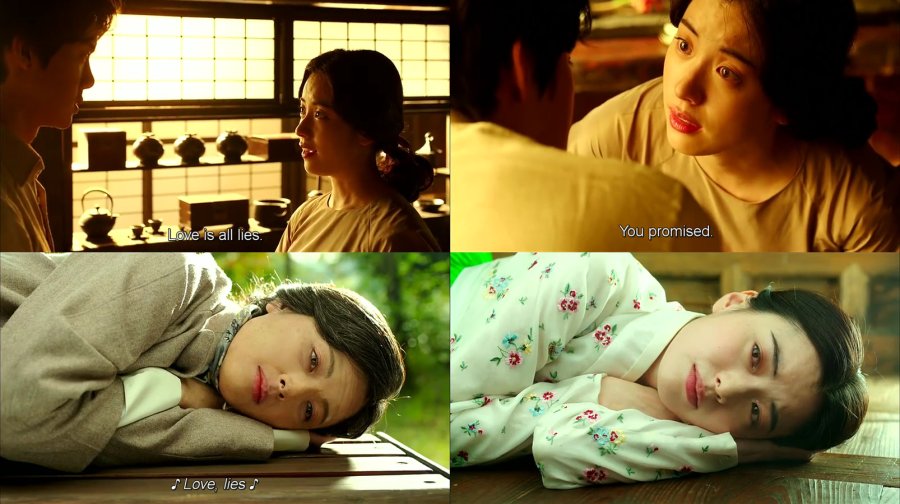
Girls raised in a Gisaeng house, the ones blessed with a voice are promoted to be singers. The two main girls are friends, and they go their separate ways after one betrays her friends' trust with her love. It's the start of a path of vengeance that ultimately becomes a poison; betrayal lead to hatred and love turned to lies. In the time of the Japanese occupation, it's the last of the Gisaengs.
Hanbando (2006) 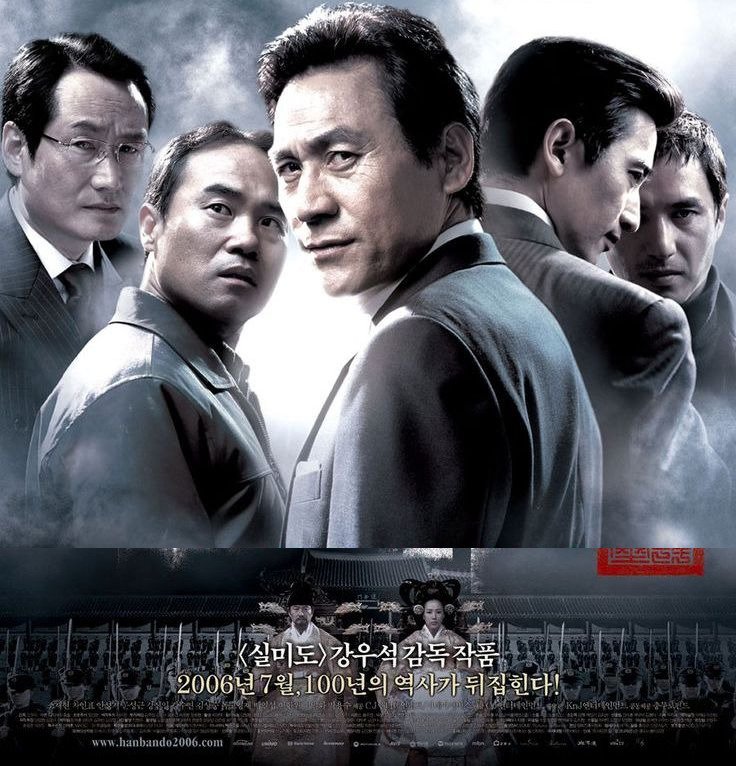
It's a bit of the future mixed with the past from the start of the Japanese annexation treaty, the last king/emperor and his seal. Korea is trying to pass a railroad with N.Korea (in order to become unified), but Japan claims to have ownership of that land because of a stamped seal that was given to them by the king. A historian claims that the seal is fake and goes out of his way to prove it. (I added this to the list because of its link to the start of the annexation treaty).
Lost Memories (2009)
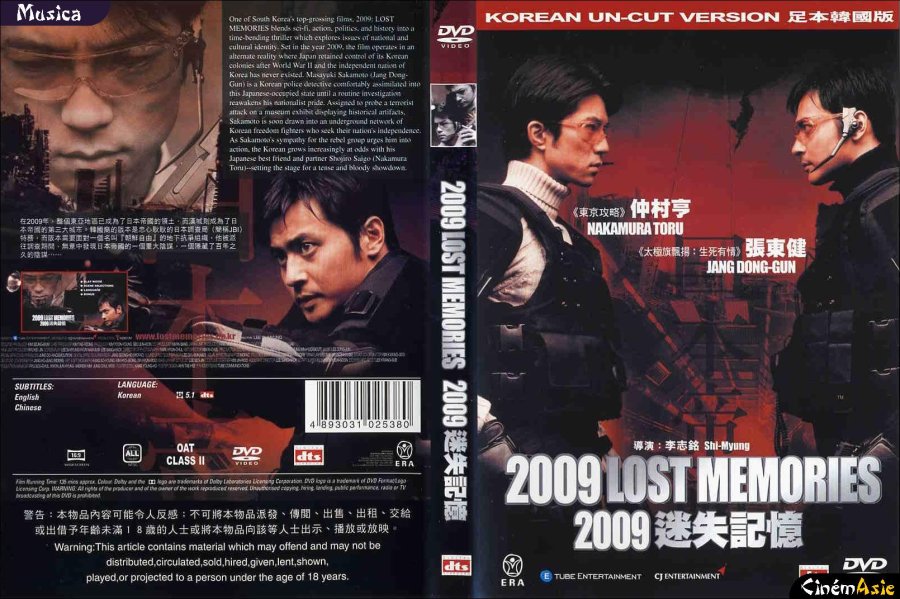
Trailer (if I had watched the trailer first I would have understood the drama more clearly lol)
Based in a world where Japan still occupied Korea much into the future and the fighters who knew about this trick - fight to take back what was theirs. A man who was raised in Japan and has "memories" of a past he doesn't remember, finds the key to his lost memories and joins the fight for his country.
*Can't Find*
Lee Sang That Lee Sang (2013) 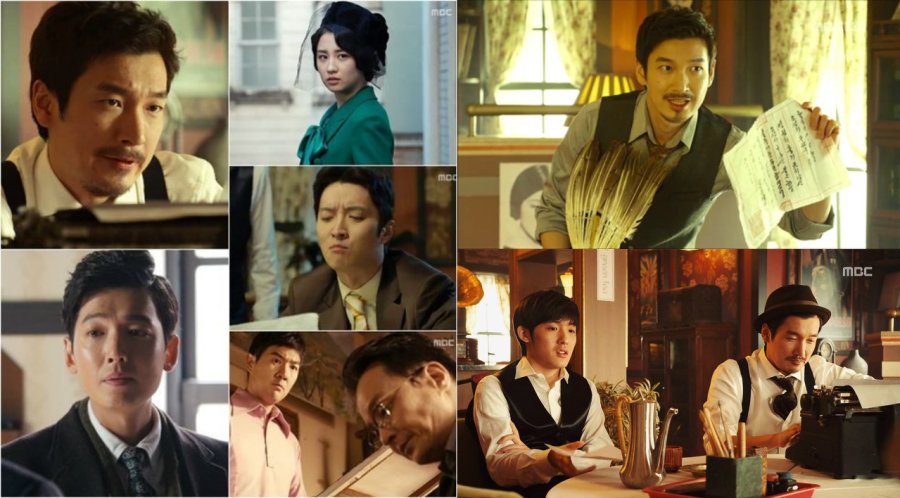
Trailer
Based on a renowned Korean Author who is generally outcasted in the Korean literacy field. This drama is about a fictional imagination of what his life might have been or could have been if his skill was used elsewhere. I personally really want to watch this because of the cast. I have not found it anywhere to watch yet. If anyone knows of a working link or site, please let me know. ^^
Battleship Island (2017) 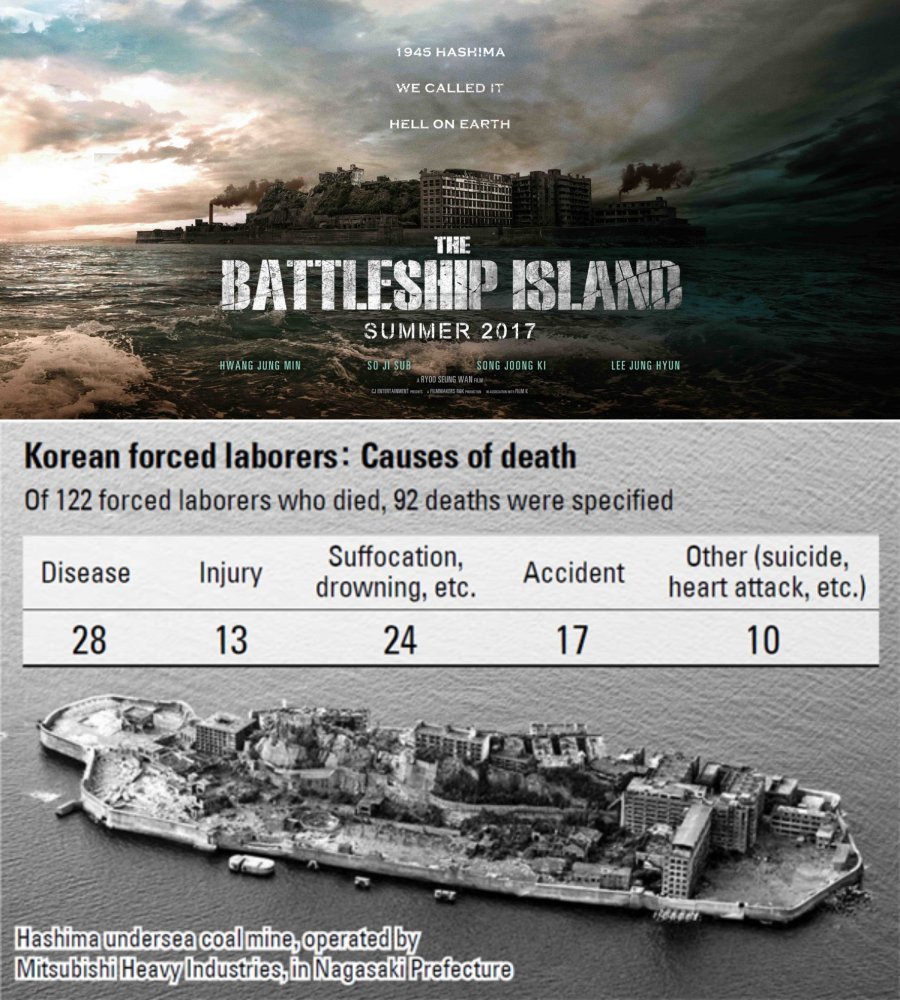
Hashima Island (Japan's "ghost island" nicknamed 'Battleship Island' after its shape) Wikipedia
"Beginning in the 1930s and until the end of the Second World War, Korean conscripted civilians and Chinese prisoners of war were forced to work under very harsh conditions and brutal treatment at the Mitsubishi facility as forced laborers under Japanese wartime mobilization policies. During this period, it is estimated that about 1,300 of those conscripted laborers died on the island due to various dangers, including underground accidents, exhaustion, and malnutrition." - Wikipedia
This focuses on 3 POW's who work here, one a fighter, one a father and one an independence fighter.
Park Yeol (2017) 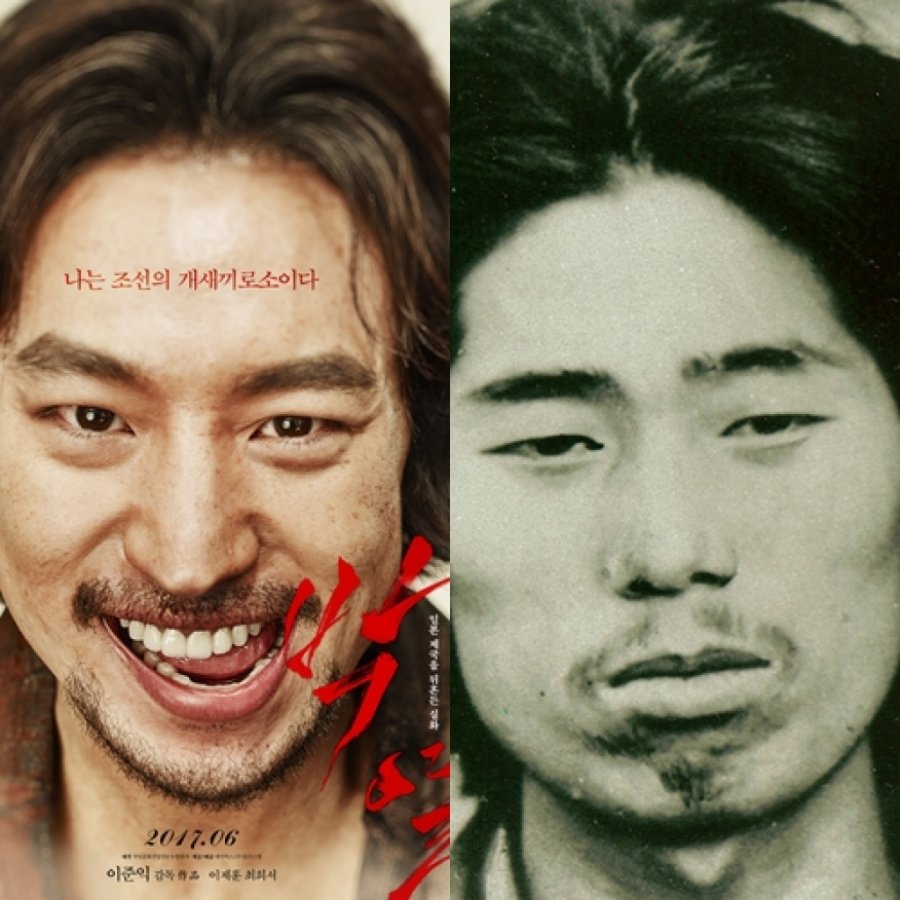
"An anarchist and independence activist during the Japanese rule who plotted a bomb attack on Crown Prince Hirohito on his wedding day." - Wikipedia *don't go into this movie expecting a happy ending*
Documentaries
All of these videos below are good and worth watching if you are interested in learning more about this era and what the people experienced as well as getting factual insight on it. (believe me, YT is loaded with a bunch of crap on this dished out from the opposite spectrum - these are the few good ones I managed to find and I wish I could find more on the in-depth policies, racial discrimination and torture things the people had to go through).
During WW2, 450,000 Korean male labourers were involuntarily sent to Japan.
This will conclude my article on the Japanese Occupation of Korea; please keep an eye out for the following article discussing what took place after the Korean war, the Vietnam war and Korea's role in it, the financial situations, the May 18th massacre and what lead up to it and so forth. ^_^
Check out -> Japanese Occupation of Korea Part 1


